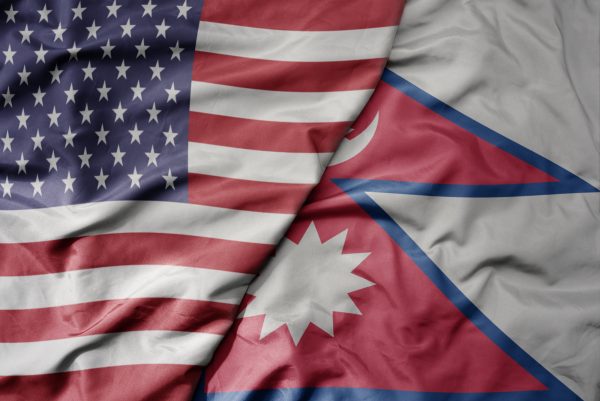The US which has a reputation for sticking their oar in every country’s internal matters, has once again crossed a line. This time the Biden administration has been found to have allegedly spent half a million dollars to promote atheism in Nepal. The matter was brought into light by Republican Congressman Brian Mast who confronted a US government official over the matter.
Mast serves as the Chair of the House Foreign Affairs Subcommittee on Oversight and Accountability. On March 21, Deputy Secretary of State for Management and Resources in the Biden Administration, Richard R. Verma testified before the subcommittee as it assessed the State Department;s compliance with the Oversight.
The Biden Administration spent HALF A MILLION DOLLARS of your money to promote atheism in Nepal. Then, they came to Congress to lie about it.
They just got BUSTED in real time. pic.twitter.com/LoqDGbk2B1
— Rep. Brian Mast (@RepBrianMast) March 21, 2024
In the video shared by the Republican Congressman, Mast asks Verma if it’s right for the State Department to approve a $500,000 grant to promote atheism using taxpayer money. To which, the official of the Biden administration, Verma replied, “It would not be appropriate to have a grant to promote any religion or non-religion coming from the United States.”
Verma, representing the Biden administration, categorically denied authorizing any grants aimed at promoting atheism, insisting that such actions would not align with US principles of religious neutrality. However, Mast persisted, citing excerpts from an official document purportedly detailing plans to bolster atheist communities in Nepal.
The exchange escalated, with Mast accusing Verma of repeatedly denying the grant’s existence despite apparent evidence to the contrary. Mast expressed dismay over what he deemed a misuse of taxpayer funds and criticized the administration for lack of transparency.
The implications of these allegations extend beyond domestic politics, potentially straining relations between the US and Nepal. If substantiated, the purported grant could be viewed as unwarranted external interference in Nepal’s internal affairs and religious landscape, particularly amid ongoing debates about the country’s status as a secular state.
Notably, these claims emerge against a backdrop of heightened tensions surrounding religious identity in Nepal, where Hinduism holds significant cultural and historical significance. The prospect of US involvement in promoting atheism could fuel existing sentiments favoring a return to Nepal’s Hindu roots, raising concerns about sovereignty and religious autonomy.
Furthermore, these allegations resonate with broader suspicions of foreign interference in Nepal’s political and religious dynamics. Accusations of covert agendas aimed at reshaping the region’s religious demography have long circulated, underscoring the delicate balance between international aid efforts and respecting national sovereignty.

















Comments